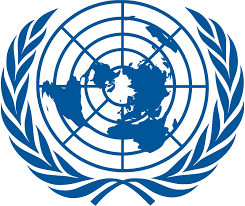In a recent United Nations Security Council Briefing, Mark Simonoff, the Legal Adviser from New York, commended the International Residual Mechanism for Criminal Tribunals for its relentless pursuit of justice in addressing atrocities committed in Rwanda and the former Yugoslavia.
President Gatti Santana and Prosecutor Brammertz provided a comprehensive briefing on the Mechanism’s ongoing efforts.
Simonoff expressed gratitude to President Gatti Santana for her leadership, acknowledging the Mechanism’s significant role in delivering justice for some of the most severe crimes of the past century.
He also conveyed condolences to Uganda on the passing of Judge Elizabeth Ibanda-Nahamya and welcomed the appointment of Judge Lydia Mugambe.
A notable achievement highlighted was the arrest of Fulgence Kayishema in May by South African authorities after evading arrest for over two decades.
Kayishema faces charges of genocide and crimes against humanity for his alleged involvement in the brutal murders of over 2,000 Tutsi individuals.
The U.S. delegation congratulated the Mechanism’s tracking team and South African authorities and expressed anticipation for the fair conclusion of legal proceedings.
Simonoff acknowledged recent developments, including the passing of Aloys Ndimbati and the Appeals Chamber’s decision on Felicien Kabuga, emphasizing that while these events cannot restore what was lost, the pursuit of justice offered some comfort to the victims.
Turning to the former Yugoslavia, Simonoff praised the International Criminal Tribunal for the former Yugoslavia (ICTY) for demonstrating that even senior military and political leaders can be held accountable for atrocity crimes. He highlighted the significance of the Mechanism’s recent appeals judgment in the case of Jovica Stanišić and Franko Simatović, closing a crucial chapter in the history of international criminal justice.
As the Mechanism transitions to a fully residual phase, Simonoff welcomed President Gatti Santana’s priorities and expressed anticipation for discussions on the Mechanism’s framework of operations. He acknowledged the Mechanism’s efforts to counter genocide denial, increase access to public judicial records, and enhance cooperation with affected states.
Simonoff emphasized the importance of national authorities taking primary responsibility for providing justice to victims, commending the Mechanism’s efforts to respond to such requests. He recognized the twelve countries serving as enforcement states, crucial to ensuring convicted war criminals serve their sentences.
At the end of his remarks, Simonoff acknowledged and honored the bravery and resilience of victims, survivors, and their loved ones in their pursuit of official acknowledgment of atrocities. He recognized the courage of witnesses, emphasizing the United States’ commitment to pressing for justice as the foundation for peace and stability in affected communities.



